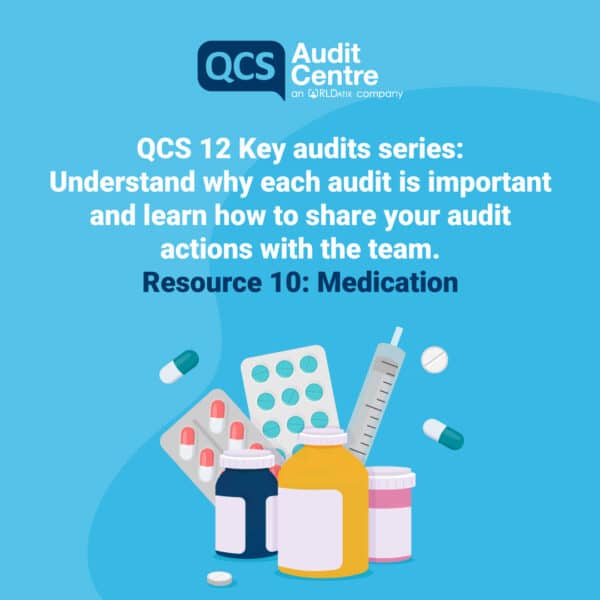Why do we need to complete audits?
To achieve good governance in your service you must demonstrate continuous quality improvement. To do this, auditing and documenting the effectiveness of the processes and systems you have in place, and taking time to observe and document how people experience your service, is essential.
Audits and completed action plans offer evidence of the great care you provide. Where improvements are needed, they allow you to demonstrate openly and clearly how you plan to make the changes required that you have identified.
Medication: the case for auditing
Medication audits are a beneficial way of both checking and providing assurance that you meet the required standards for safely administering medicines. The data gathered ensures that you can identify trends, patterns, and any areas of concern within this area.
Having a robust method of monitoring your performance in this area can save potential accidents occurring, additional paperwork and ultimately, could save a life. By identifying gaps or holes in your medication administration processes early you will have a far better gauge on how medication is handled. Consequently, you will have the tools to formulate a better plan, perhaps offer further training and support for your staff, resulting in improved and further developed care delivery.
- Audits are necessary to monitor authentic and impartial performance
- Audits will help you to identify gaps in training and support
- Audits will aid in reviewing existing policies, procedures, and methods of care practice
- Audits will evidence that any incidents that cause serious harm or death are logged with the appropriate governing body
- Audits will evidence your continuous improvement by allowing you to log the changes implemented as a result
To provide a genuine service that truly cares about both service users and staff, audits offer you that assurance you strive for. The promise that you actively believe in the importance of continuous improvement, and why it is essential to have the awareness embedded in your company culture is completely transparent within the regular audit process. This confirms that you strive for care and support to be delivered in the most person-centred and safe way possible.
Medication Audit: achieving compliance
Audits enable you to provide valid, up to date evidence to the CQC that you are managing the Medication Audit process effectively and meeting the required regulations such as:
- Regulation 12: Safe care and treatment
- Regulation 13: Safeguarding service users from abuse and improper treatment
- Regulation 17: Good governance
- Regulation 20: Duty of candour
To be compliant with CQC regulations on medication error reporting, mistakes must be transparent and learnt from. The correct processes must be followed.
Findings: what does the medication audit tell you?
Example 1
An audit highlights that there have been several missed medications with the same service user, as a provider you should:
- Review which staff were on duty at the time, was it the same staff member(s)?
- Review the rota, were there enough staff on duty?
- Provide further training/support to staff
- Ensure that your staff have completed competencies in this area
- Review the timing of the medication, are there important tasks required at the same time? Consider stabilising this to avoid future errors
- Make any notifications that may be required if any service user was harmed, or the errors meet any safeguarding thresholds for reporting
Example 2
An audit has revealed various staff are out of date with their medication training, as a provider you should:
- Remove and replace those staff from their planned medication administration duties until their training has been completed
- Arrange their refresher training immediately
- Review your training matrix and ensure that you have a regular system to avoid going out of date in the future
So, what happens next?
Effective auditing can encourage providers and staff to have confidence in your processes and in turn foster an open and transparent culture, where staff feel comfortable reporting incidents and near misses, especially if this is part of a no blame culture.
But it does not stop once the audit is complete. Your good governance systems then take over creating an environment where learning and improvement thrive, benefiting the safety and well-being of those receiving care and support.
Once you have had a chance to review your audits you can then if needed:
- Allocate resources
- Implement prevention measures
- Increase/implement/refresh staff training
- Consider environmental changes
- Consider the use of assistive devices
- Share the findings and actions with the team






